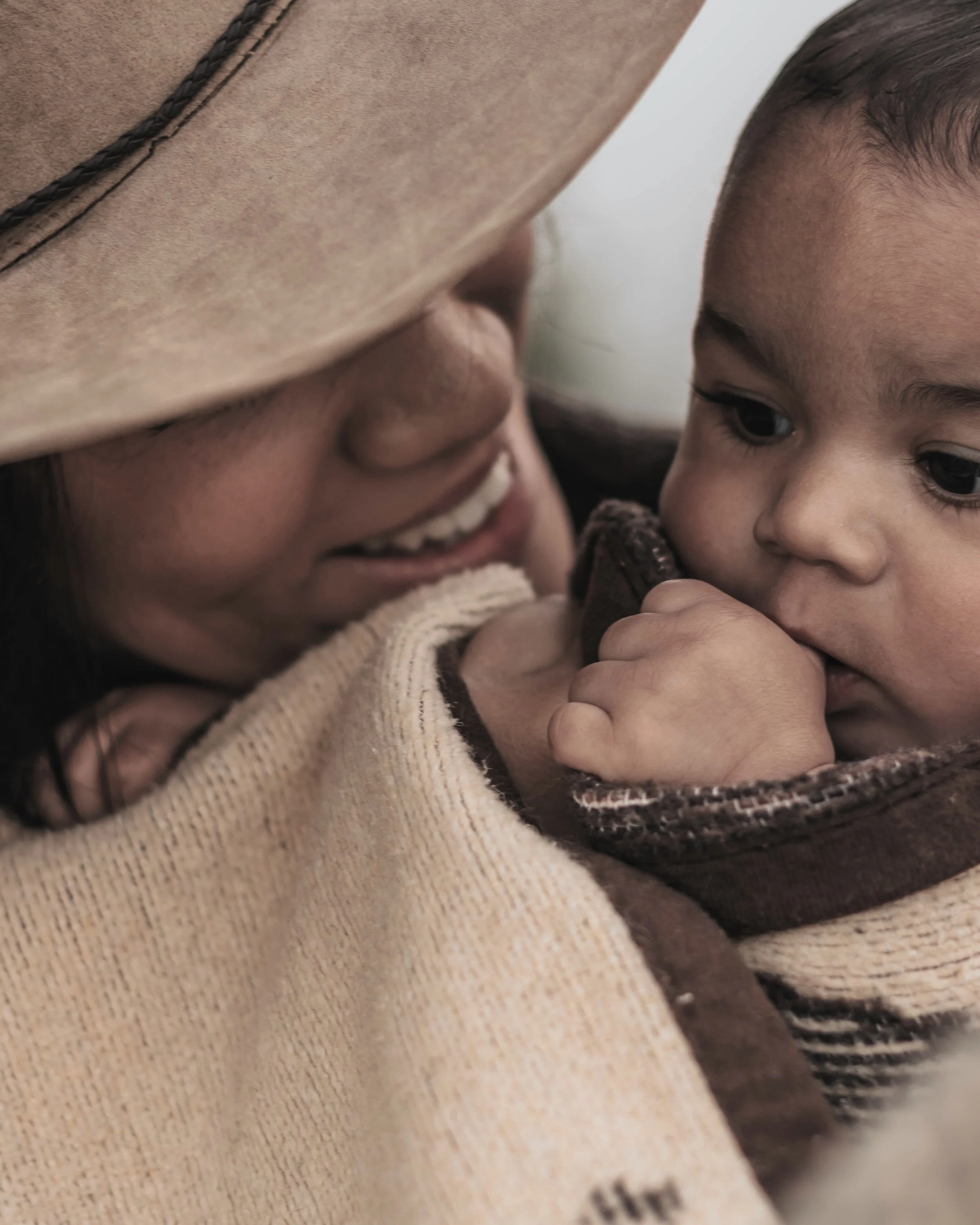Why it is normal for babies to want to be held all the time
Many babies are happy in our arms but get upset the second we put them down.
They cry when we put them in the stroller, in their crib, or on the couch beside us.
They easily fall asleep in our arms but wake as soon as we put them down.
All of that is perfectly normal!
Nature has shaped babies to want to be close to us all the time!
Babies feel safe and can relax when they are on our bodies.
Over most of our evolutionary history as humans, we lived as hunter gatherers outside in nature, along with other animals, including predators like lions and tigers.
Any baby that would have been put down somewhere to sleep, nap, or just hang out by themselves would have become easy prey and most certainly died.
Babies literally needed to be in the arms of a caretaker to stay alive.
And because they needed to be so close, they have evolved a STRONG PREFERENCE to want to be close.
Because being in their caretaker’s arms (or on their back in a carrier) meant safety, babies evolved to FEEL safe when they are in their caretaker’s arms.
And because nightfall and the night were when predators that prey on humans would be out and about, the night was the most dangerous time of the day, where it was most important that babies (and also older children) were close to an adult that could keep them safe.
And this is why babies seek this closeness especially in the evenings and at night.
Waking up when being put down or getting upset when somewhere by themselves is babies’ way to ensure they are still safe, and to do everything in their power to get back to a state of safety if they aren’t. They do so by alerting us through crying.
Obviously, there are no lions or tigers in our homes. In the modern world, babies are generally perfectly safe from predators even if they are in a room by themselves. But they don’t know that!
Their psychology has been shaped to react to situations that, over our evolutionary history, were dangerous. And no amount of reasoning can change that.
And there is also another reason why babies prefer close physical contact:
Babies are born prematurely (at least when compared to other mammals). As part of this prematurity, they cannot quite regulate their own body temperature, breathing, and digestion.
They need our body to help them do so. When we hold them, our bodies co-regulate our babies’ body temperature, breathing, and digestion.
We also help them co-regulate their emotions. When a baby feels distressed, they sense our body’s response; and they will be able to calm down and feel reassured and safe, if we exude safety and calmness while their stress will increase if we exude stress.
In many ways, babies and mothers (and to some extent also other caretakers) are but one organism.
The mother’s body is a baby’s natural environment.
It is where they feel safe, develop healthily, and feel happy.
So if you enjoy holding your baby, hold your baby.
As much as you like.
Put them in a carrier.
Sleep in the same bed (with some adjustments to make sure it is safe).
Put them on you when you sit on the couch.
If you feel stressed, listen to a guided meditation while having your baby on your tummy or in a carrier.
Any ideas that too much contact could spoil your baby or slow down their independence are based on a fundamental misconception of how we have evolved, of what babies need.
And any ideas that parents who enjoy close contact with their babies are weak-minded, permissive, or at risk to be controlled by their child, are just as misguided.
For evolution has also shaped us to want to hold our babies. To enjoy close contact with them. To make them feel good and safe.
That, too, is normal.
So that we can all grow up connected.

